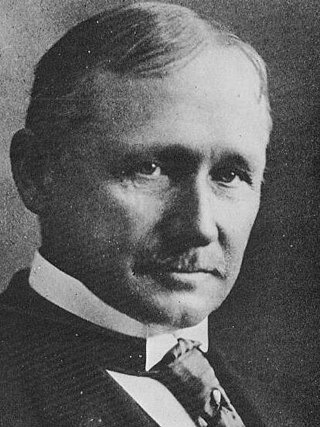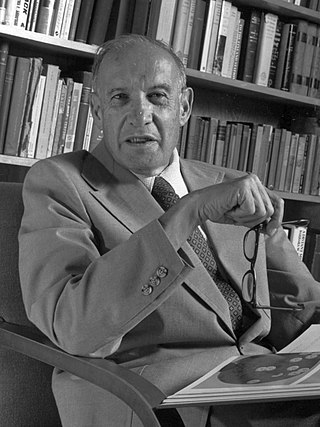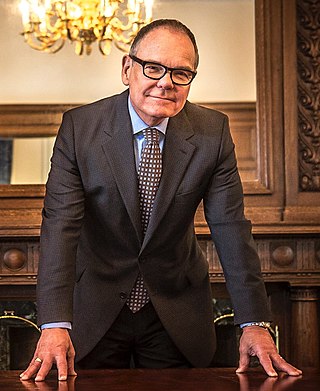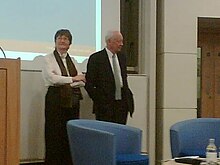
A shamrock is a type of clover, used as a symbol of Ireland. Saint Patrick, one of Ireland's patron saints, is said to have used it as a metaphor for the Christian Holy Trinity. The name shamrock comes from Irish seamróg, which is the diminutive of the Irish word seamair and simply means "young clover".

Frederick Winslow Taylor was an American mechanical engineer. He was widely known for his methods to improve industrial efficiency. He was one of the first management consultants. In 1909, Taylor summed up his efficiency techniques in his book The Principles of Scientific Management which, in 2001, Fellows of the Academy of Management voted the most influential management book of the twentieth century. His pioneering work in applying engineering principles to the work done on the factory floor was instrumental in the creation and development of the branch of engineering that is now known as industrial engineering. Taylor made his name, and was most proud of his work, in scientific management; however, he made his fortune patenting steel-process improvements. As a result, scientific management is sometimes referred to as Taylorism.

In sales, commerce, and economics, a customer is the recipient of a good, service, product, or an idea, obtained from a seller, vendor, or supplier via a financial transaction or an exchange for money or some other valuable consideration.

Peter Ferdinand Drucker was an Austrian American management consultant, educator, and author, whose writings contributed to the philosophical and practical foundations of modern management theory. He was also a leader in the development of management education, and invented the concepts known as management by objectives and self-control, and he has been described as "the founder of modern management".

Sir Thomas Johnstone Lipton, 1st Baronet was a Scotsman of Ulster-Scots parentage who was a self-made man, as company founder of Lipton Tea, merchant, philanthropist and yachtsman who lost 5 straight America's Cup races.
Knowledge workers are workers whose main capital is knowledge. Examples include ICT Professionals, physicians, pharmacists, architects, engineers, scientists, design thinkers, public accountants, lawyers, editors, and academics, whose job is to "think for a living".

Sir Geoffrey John Mulgan CBE is Professor of Collective Intelligence, Public Policy and Social Innovation at University College London (UCL). From 2011 to 2019 he was chief executive of the National Endowment for Science Technology and the Arts (NESTA) and visiting professor at University College London, the London School of Economics, and the University of Melbourne.

John Paul Kotter is the Konosuke Matsushita Professor of Leadership, Emeritus, at the Harvard Business School, an author, and the founder of Kotter International, a management consulting firm based in Seattle and Boston. He is a thought leader in business, leadership, and change.

Don Tapscott is a Canadian business executive, author, consultant and speaker, who specializes in business strategy, organizational transformation and the role of technology in business and society. He is the CEO of the Tapscott Group and the co-founder and Executive Chairman of the Blockchain Research Institute.

Bill Ivey is an American folklorist and author. He was the seventh chairman of the National Endowment for the Arts, and is a past chairman of the National Academy of Recording Arts and Sciences.

Adrian J. Slywotzky is an American consultant of Ukrainian origin and the author of several books on economic theory and management.
Constantinos C. Markides is a Cypriot management educator and, since 1990, the Robert P. Bauman Professor of Strategic Leadership at London Business School. He is known for his work on strategic disruption and business models which is particularly illustrated in his book Game Changing Strategies published in 2008. He was listed among the Forbes.com list of Most Influential Management Gurus (2009).

Parker J. Palmer is an American author, educator, and activist who focuses on issues in education, community, leadership, spirituality and social change. He has published ten books and numerous essays and poems, and is founder and Senior Partner Emeritus of the Center for Courage and Renewal. His work has been recognized with major foundation grants, several national awards, and thirteen honorary doctorates.

A facilitator is a person who helps a group of people to work together better, understand their common objectives, and plan how to achieve these objectives, during meetings or discussions. In doing so, the facilitator remains "neutral", meaning they do not take a particular position in the discussion. Some facilitator tools will try to assist the group in achieving a consensus on any disagreements that preexist or emerge in the meeting so that it has a solid basis for future action.
Dermot Keely is an Irish former manager and player. He was a schoolteacher by profession.

James Christopher McLaughlin is a Northern Irish former footballer and was later a football manager in the League of Ireland.
Terry Eviston was a footballer who played for Home Farm, Bohemians, Athlone Town A.F.C., Dundalk F.C. and two spells with Shamrock Rovers. He is the current manager of Raheny United in the Women's National League (Ireland).
The shamrock leaf shape is a symbolic representation of an organization with three types of workforce, having a main body and connected lobes that together form a whole.

A business guru is a manager that can be defined as 'a person with influential ideas or theories about business'. The earliest use of the term business guru can be tracked back to the 1960s being used in Business Week. There are no existing qualifications that make someone a business guru. Anyone can become a business guru by making impact in a particular industry. It's also possible to claim to be a business guru at any time. It's not a title. The lists of people who have been accepted as business gurus have constantly changed over time. However, there are some people who have been accepted by a great majority as a business guru and also some organizations which have created their own lists of gurus. One English writer has described management gurus as "overwhelmingly a US phenomenon."














